
Aplizon 100mg/325mg/15mg Tablet
Manufacturer
Harrison Healthcare
Salt Composition
Aceclofenac (100mg) + Paracetamol (325mg) + Serratiopeptidase (15mg)
Key Information
Short Description
Aplizon 100mg/325mg/15mg Tablet is a combination medicine used to relieve pain and swelling in various conditions like muscle pain, joint pain, and postoperative pain.
Dosage Form
Tablet
Introduction
Aplizon 100mg/325mg/15mg Tablet is a combination medicine used to relieve pain and swelling in various conditions like muscle pain, joint pain, and postoperative pain. It effectively alleviates pain and inflammation in conditions like rheumatoid arthritis, ankylosing spondylitis, and osteoarthritis.
Directions for Use
Take this medicine in the dose and duration as advised by your doctor. Swallow it as a whole. Do not chew, crush or break it. Aplizon 100mg/325mg/15mg Tablet is to be taken with food.
How it works
Aplizon 100mg/325mg/15mg Tablet is a combination of three medicines: Aceclofenac, Paracetamol and Serratiopeptidase. Aceclofenac is a non-steroidal anti-inflammatory drug (NSAID) and Paracetamol is an antipyretic (fever reducer). They work by blocking the release of certain chemical messengers in the brain that cause pain and fever. Serratiopeptidase is an enzyme which works by breaking down abnormal proteins at the site of inflammation and promotes healing.
Quick Tips
You have been prescribed this combination medicine for relieving pain and inflammation. Take it with food to avoid getting an upset stomach. It may cause dizziness and sleepiness. Do not drive or do anything that requires mental focus until you know how Aplizon 100mg/325mg/15mg Tablet affects you. Avoid consuming alcohol when taking Aplizon 100mg/325mg/15mg Tablet as it may cause excessive drowsiness and increase the risk of liver damage. Do not take it with any other medicine containing acetaminophen (drugs for pain/fever or cough-and-cold) without asking your doctor first.
Related Medicines
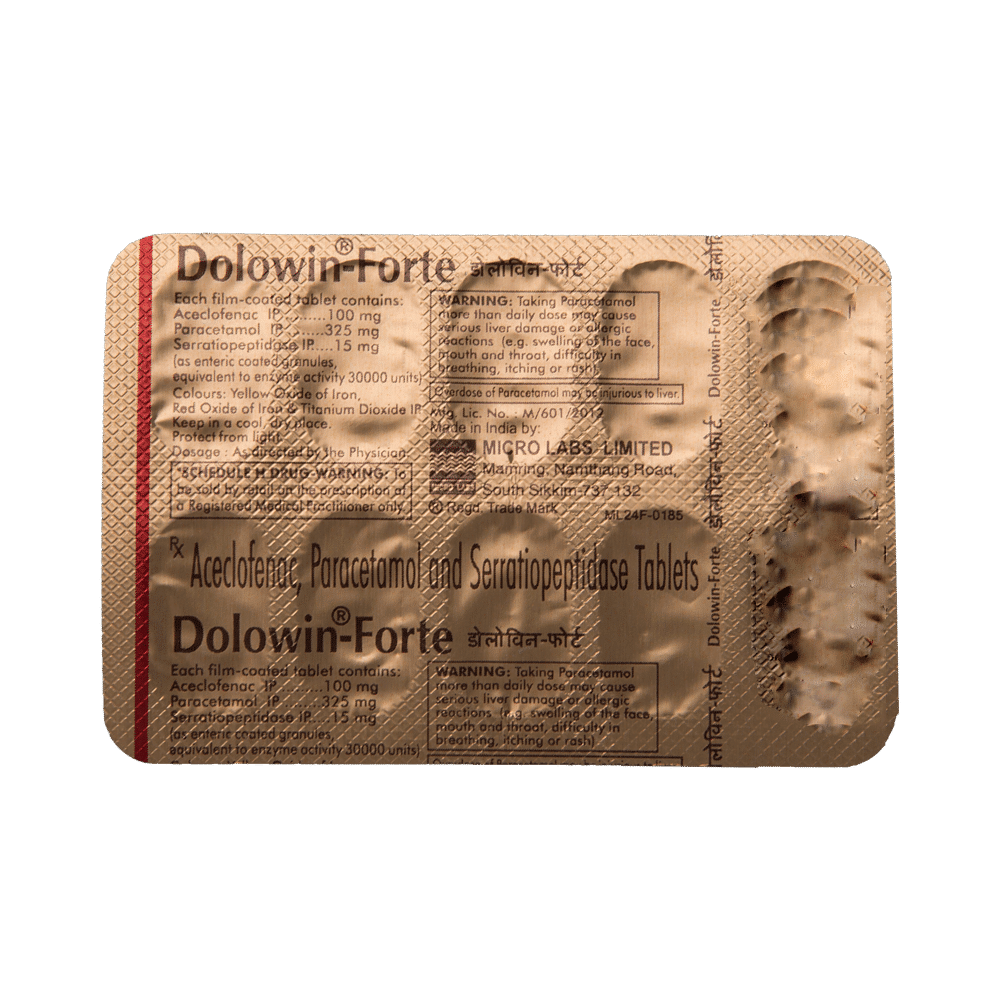
Dolowin-Forte Tablet

Muclonac SP 100mg/325mg/15mg Tablet
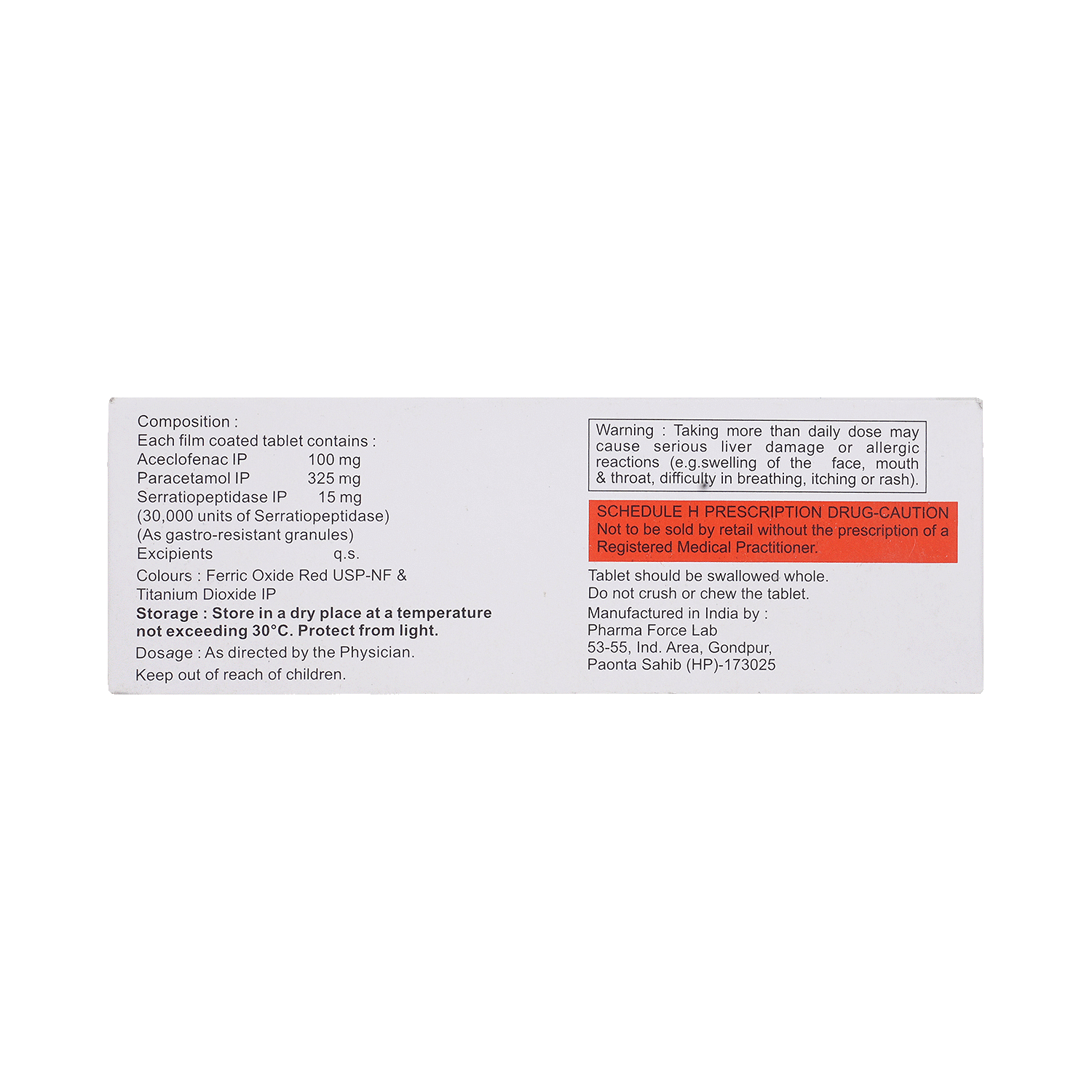
Dolokind-AA Tablet
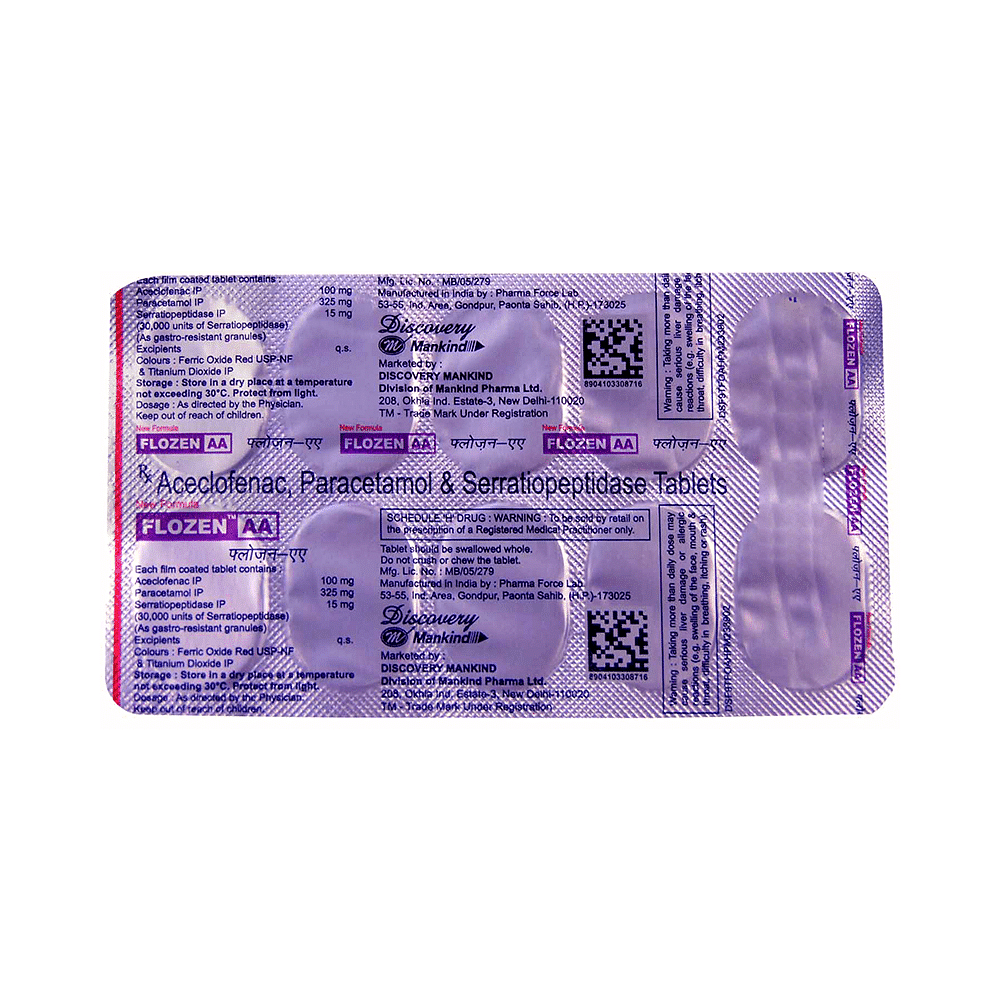
Flozen-AA Tablet

Signoflam Tablet
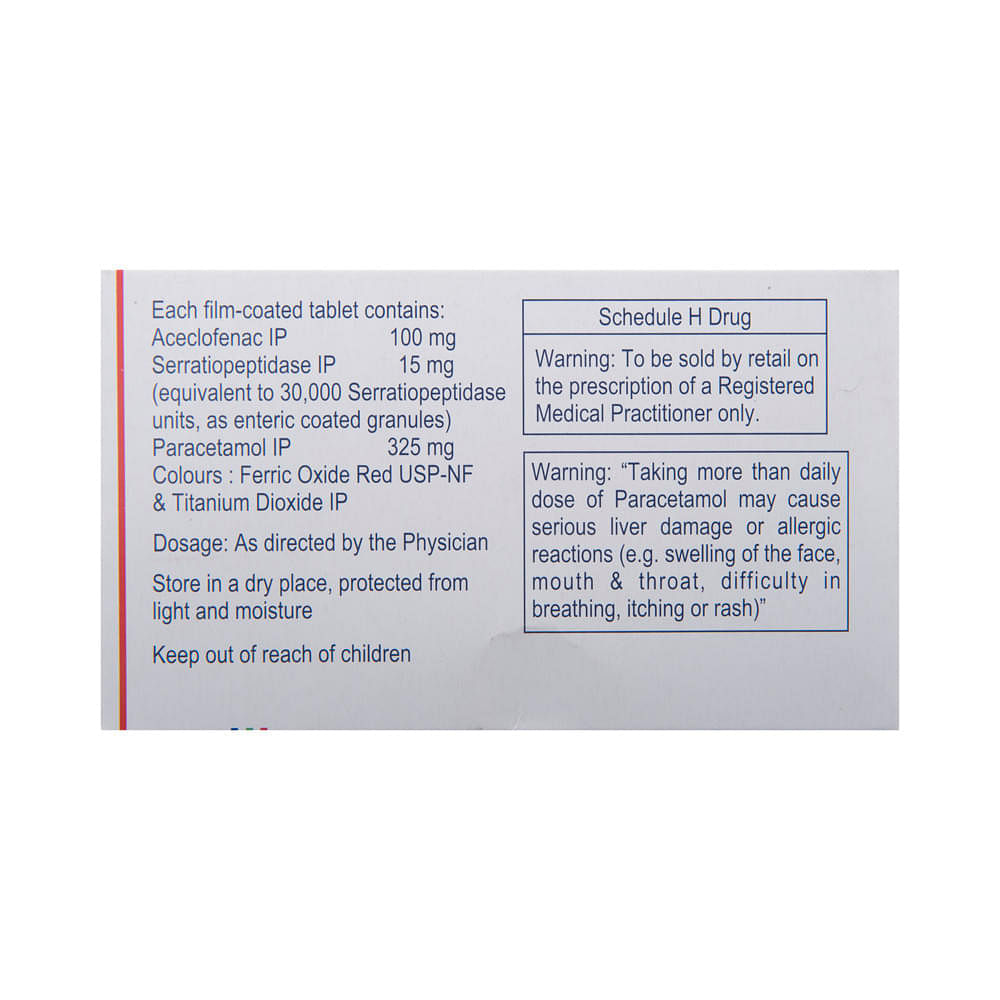
Zerodol-SP Tablet
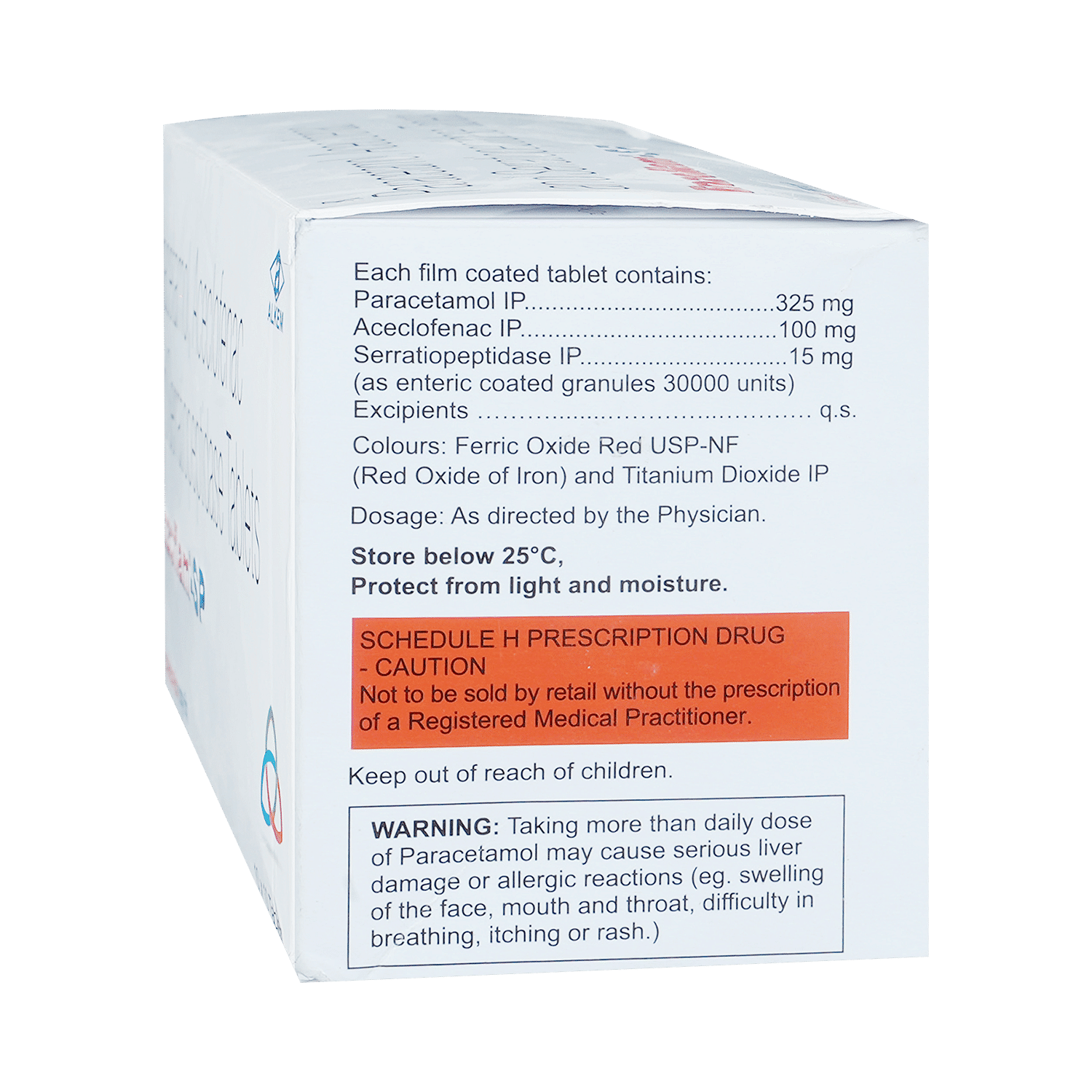
Enzoflam-SP Tablet

Erinac SP 100mg/325mg/15mg Tablet
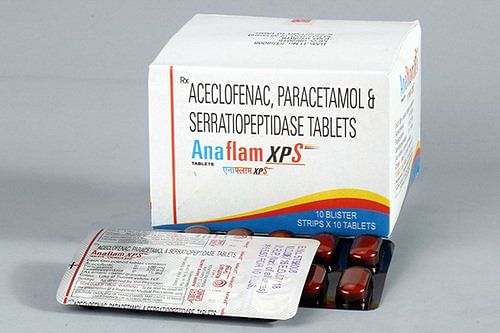
Anaflam Xps Tablet
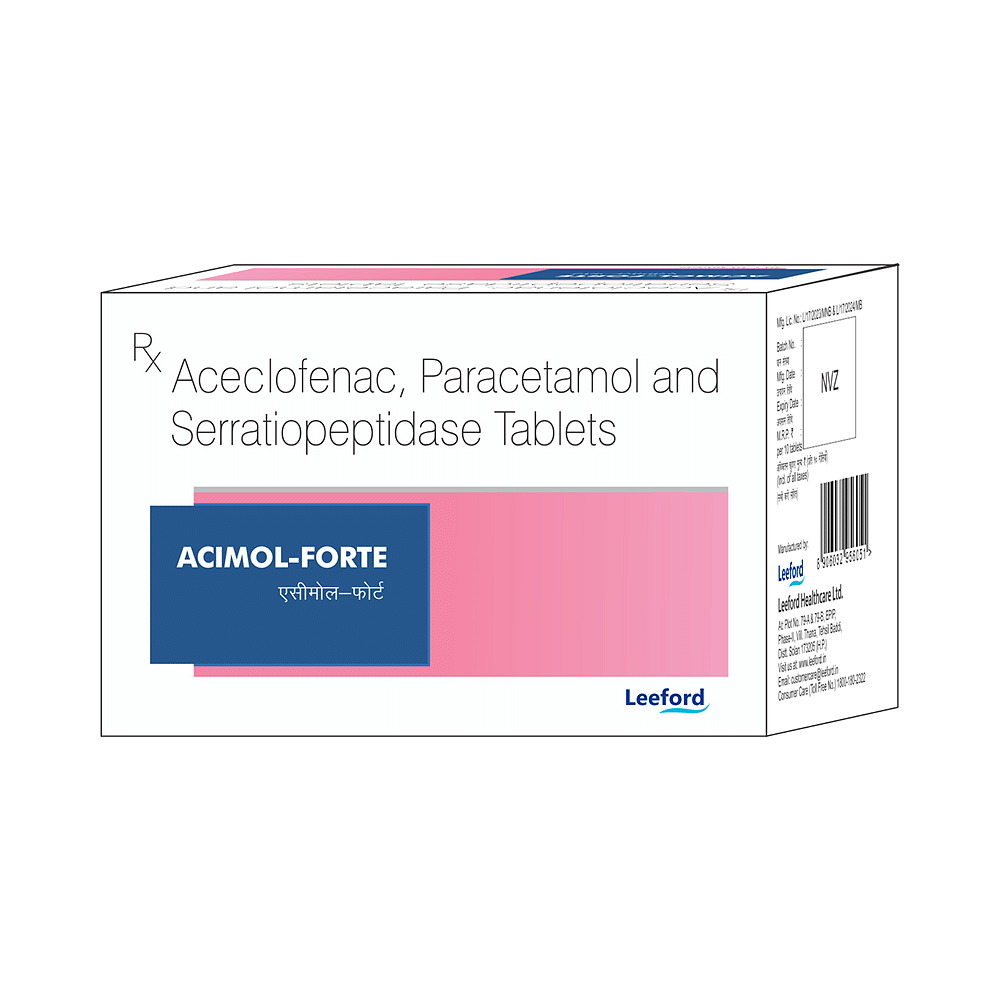
Acimol-Forte Tablet
Frequently asked questions
What is Aplizon 100mg/325mg/15mg Tablet?
Aplizon 100mg/325mg/15mg Tablet is a combination medicine that contains Aceclofenac, Paracetamol, and Serratiopeptidase. This medication helps relieve pain and reduce inflammation.
Is Aplizon 100mg/325mg/15mg Tablet safe to take?
This medicine is generally safe for most patients. However, some people may experience unwanted side effects like nausea, vomiting, stomach pain, heartburn, and diarrhea. If you notice any persistent problems after taking this medication, it's important to talk to your doctor as soon as possible.
Can I stop taking Aplizon 100mg/325mg/15mg Tablet when my pain is relieved?
This medicine usually provides relief for a short-term condition. It can be discontinued once you feel your symptoms are less severe and have been relieved by the medication. However, always follow your doctor's advice.
Can Aplizon 100mg/325mg/15mg Tablet cause nausea and vomiting?
Yes, using this medicine can lead to nausea and vomiting. If you experience nausea while taking the medication, take it with milk, food, or antacids. Avoid consuming fatty or fried foods along with this medication. If you vomit, try drinking plenty of water or other fluids in small amounts. Contact your doctor if nausea persists and you notice signs of dehydration, such as dark-colored urine or a low frequency of urination. Never take any other medicines without first discussing it with your doctor.
Can Aplizon 100mg/325mg/15mg Tablet cause dizziness?
Yes, some people may experience dizziness (feeling faint, weak, unsteady, or lightheaded) while using this medication. If you feel dizzy, it's best to rest and resume normal activity only when you feel better.
Are there any specific contraindications associated with taking Aplizon 100mg/325mg/15mg Tablet?
This medicine is not suitable for people with known allergy to any of its components or excipients, or those who are allergic to other painkillers (NSAIDs). It's also important to avoid this medication in patients with a history of stomach ulcers, active or recurrent ulcer/bleeding. It should be avoided in patients with a history of heart failure, high blood pressure and liver or kidney disease.
Can I take Aplizon 100mg/325mg/15mg Tablet with vitamin B-complex?
Yes, this medicine can be taken with vitamin B-complex preparations. While it helps to relieve pain, vitamin B-complex may help correct any existing vitamin deficiencies that could be contributing to your symptoms.
Can Aplizon 100mg/325mg/15mg Tablet cause damage to the kidneys?
Yes, long-term use of this medication may lead to kidney damage. The body's natural defense mechanisms, prostaglandins, protect the kidneys from harm. However, using painkillers can lower the levels of these protective prostaglandins, leading to potential kidney damage in the long term. This medicine is not recommended for people with pre-existing kidney diseases.
Can I take a higher dose of Aplizon 100mg/325mg/15mg Tablet than what's recommended?
No, taking a higher dose than prescribed may increase the chance of experiencing side effects. If you are experiencing increased pain or your symptoms don't improve with the prescribed dose, please consult your doctor for re-evaluation.
What are the instructions for storage and disposal of Aplizon 100mg/325mg/15mg Tablet?
Keep this medicine in its original container and seal it tightly. Store it according to the instructions mentioned on the packaging label. When you no longer need this medication, dispose of it responsibly, ensuring it's not accessible to pets, children, or other individuals.


